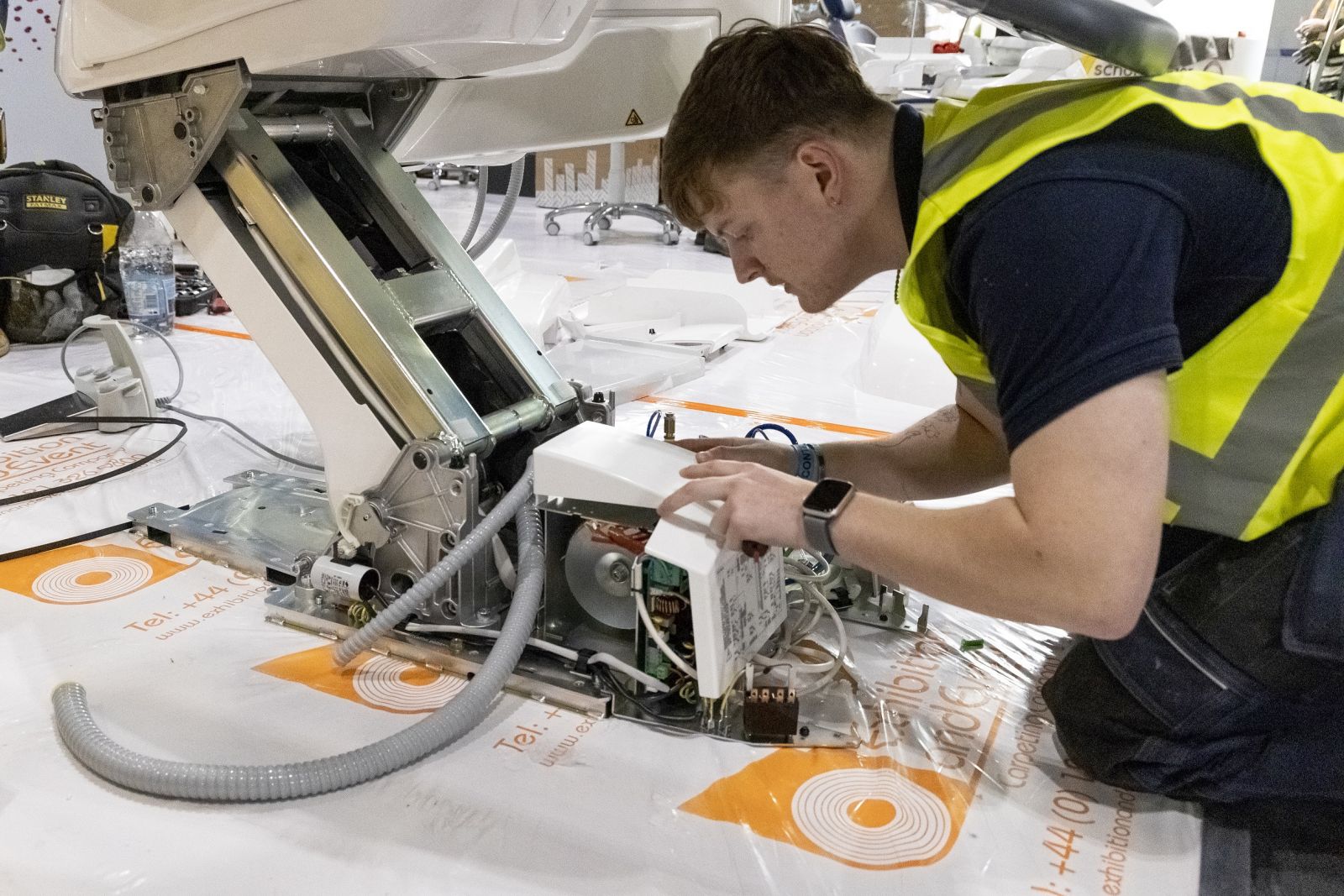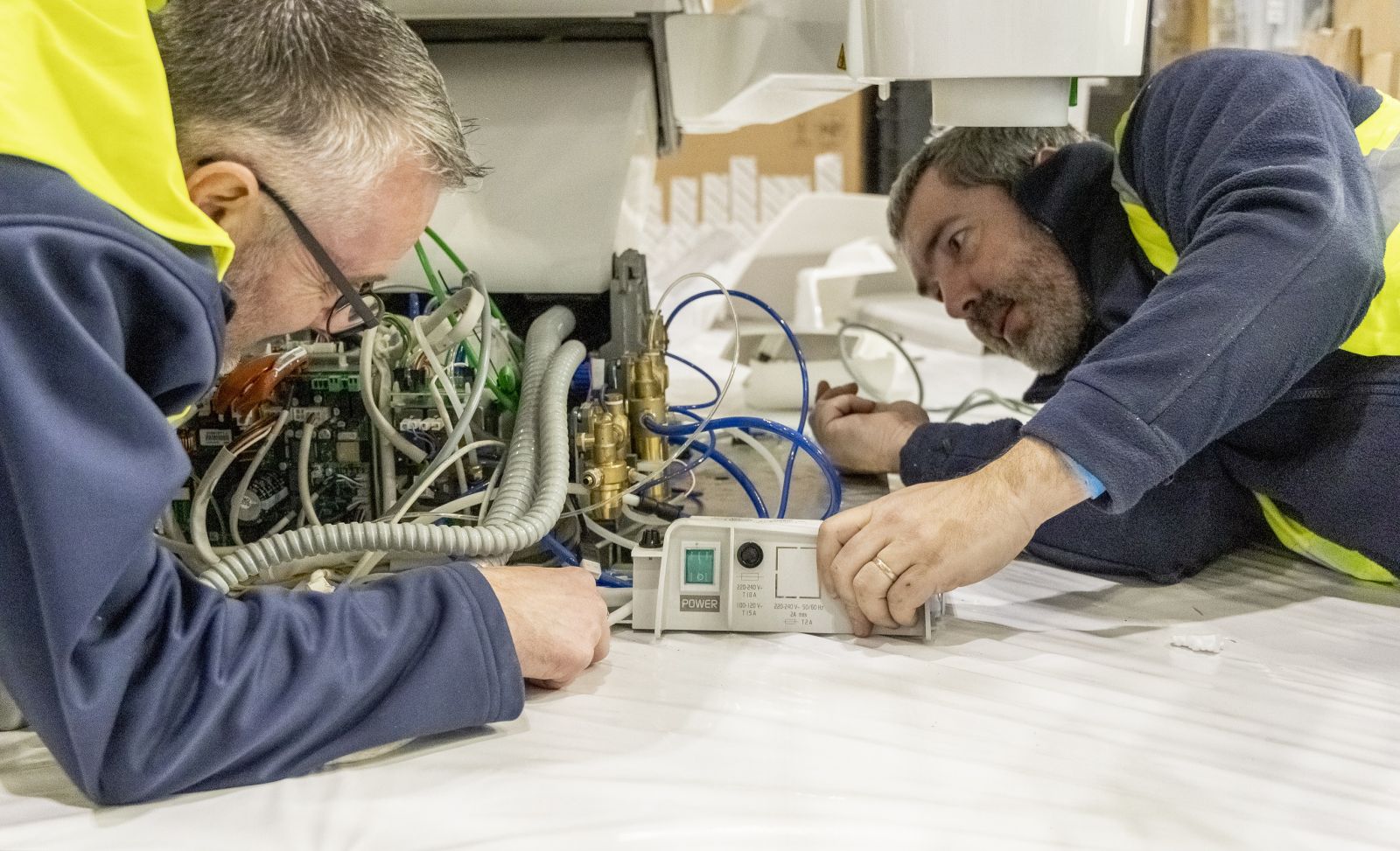In this blog post, we will explore why regular equipment servicing is essential for dental practices and how our service contracts can help bring you peace of mind.
In the world of dentistry, reliable and well-maintained equipment is essential fo r delivering high-quality patient care.
r delivering high-quality patient care.
Dental practices heavily rely on their equipment, such as chairs, X-ray machines, autoclaves, and handpieces, to function smoothly and efficiently.
Regular maintenance and servicing of these devices are crucial to ensure their longevity and optimal performance.
Reliability and Equipment Longevity
Dental equipment is subjected to constant wear and tear due to daily use.
Over time, components may become worn out, calibration might drift, or mechanisms may malfunction, leading to decreased performance and potential breakdowns.
With regular servicing, dental professionals can ensure that their equipment receives regular inspections, preventative maintenance, and timely repairs.
This proactive approach helps identify and address any issues before they become major problems, ensuring that the equipment operates reliably and efficiently.
Regular servicing not only improves the performance of the equipment but also extends its lifespan.
Well-maintained devices are less likely to suffer from premature failures and costly repairs, saving dental practices valuable time and resources in the long run.
Compliance with Safety Standards
The dental industry is governed by strict safety regulations and guidelines.
Regular equipment servicing plays a crucial role in maintaining compliance with these standards.
Our service contracts ensure that your dental equipment is regularly inspected, calibrated, and maintained to meet the required safety and quality standards.
This helps protect both the patients and the dental staff, minimising the risk of accidents, injuries, or potential legal liabilities.
Minimised Downtime and Enhanced Productivity
Equipment breakdowns can be a major source of frustration for dental practices, leading to interruptions in patient care and loss of valuable time and revenue.
With our service contracts, dental professionals can benefit from prompt and efficient repairs.
Trained technicians with in-depth knowledge of the equipment can quickly diagnose and resolve issues, minimising downtime and ensuring that the practice can continue providing uninterrupted services.
Plus all our technicians are trained in-person by the manufacturer, and we will never send a technician who hasn’t been fully-trained to a job.
Additionally, regular servicing and preventative maintenance can help identify any potential problems before they escalate.
By addressing these issues proactively, dental practices can prevent sudden breakdowns and maintain a consistent workflow, resulting in enhanced productivity and improved patient satisfaction.
Cost-Effective Solution.jpg)
While some dental professionals may hesitate to invest in service contracts due to perceived costs, it is essential to recognise the long-term cost-saving benefits they offer.
Service contracts help avoid costly emergency repairs by addressing minor issues early on, preventing them from developing into major problems.
By adhering to a regular maintenance schedule, dental practices can extend the lifespan of their equipment, reducing the need for frequent replacements.
Furthermore, service contracts often include discounted rates for repairs and replacement parts, providing additional cost savings.
With predictable and manageable expenses, dental practices can effectively budget for equipment maintenance, making it a financially viable option in the long term.
Conclusion
Regular servicing of dental equipment is of utmost importance for the smooth functioning of dental practices.
Our service contracts offer comprehensive solutions that ensure optimal performance, reliability, compliance with safety standards, minimised downtime, and cost-effective equipment maintenance.
By investing in these contracts, dental professionals can focus on delivering exceptional patient care while entrusting their equipment to the expertise of trained technicians.
Ultimately, prioritising regular servicing and maintenance will help dental practices thrive in an increasingly competitive industry, providing a seamless experience for both patients and staff.

